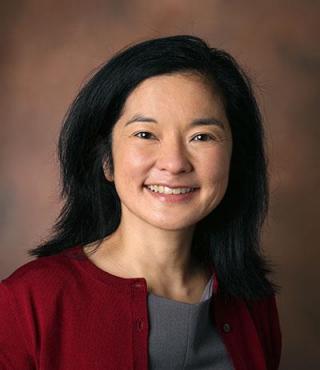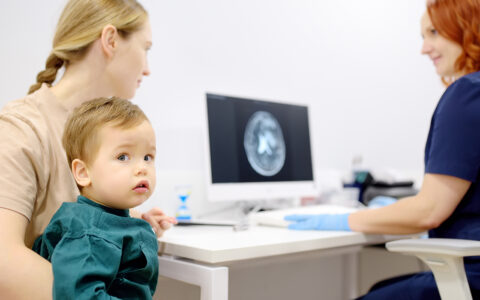Adolescent girls with spina bifida face unique health challenges when transitioning into adulthood. A pediatric urology duo – past pediatric urology fellow Carmen Tong, D.O., and Stacy Tanaka, M.D., director of the Spina Bifida Clinic at Monroe Carell Jr. Children’s Hospital at Vanderbilt – recognized the extensive knowledge gaps in this area, prompting them to summarize best practices in the journal Urology.
“There has not been a lot of research specifically on sexual education, prenatal care, or reproductive care in these girls, and now there has been some emerging literature about how both patients and providers do not feel equipped to talk about these topics,” Tanaka said.
Understanding Puberty Differences in Spina Bifida
Early onset puberty occurs at a prevalence of 12 to 16 percent among girls with spina bifida, with menarche occurring at 11 years of age on average, which can be shocking for both the child and the parents – who may not be ready to discuss topics related to sexual development.
“For patients with chronic diseases, there’s a tendency for parents and providers to think of the person as asexual, and that is almost always not the case. So, sexual health education and needs, including regular screenings, cannot be ignored,” Tanaka said. She recommends providers discuss sexual and reproductive care early on, to set expectations for parents of children with spina bifida.
“For patients with chronic diseases, there’s a tendency for parents and providers to think of the person as asexual, and that is almost always not the case.”
Improving Sexual Health and Experiences
Maintaining bladder control during sexual contact is a primary concern for women with spina bifida, say the researchers, which often causes neurogenic bladder and bowel dysfunction. Achieving social urinary continence is one of the most important predictors for having a partner and sexual contact.
“Sexual education can be discussed from the standpoint of side effects and addressed specifically for that young woman. For example, discussing potential physical limitations due to deformities or contractures that can make it difficult to have penetrative sex,” Tong said.
While many people with spina bifida have already had surgical interventions to increase bladder continence by adolescence, additional concerns for young women with spina bifida include difficulties with sexual function and response due to nerve damage and/or anxiety.
“Finding social support, especially peers with spina bifida via the Spina Bifida Association or who receive care at the same clinic, can also help these young women discuss their shared concerns and experiences regarding sex, sexual health, and relationships,” Tanaka explained.
Pregnancy Considerations
For prevention of pregnancy, women with spina bifida may need to avoid birth control pills because of increased risk of lower bone mineral density and birth control devices containing latex due to a high prevalence of latex allergy in this population.
For prenatal care, or safety and precautions for pregnant women with spina bifida, few standardized guidelines or protocols have been published. Maintaining renal health during pregnancy is essential; therefore, baseline renal assessments prior to or early in the pregnancy is advised. Tanaka recommends that women with spina bifida consume folic acid daily (4 mg for at least 1-3 months prior to conception to week 12 of gestation, followed by 400 µg until birth).
“Sexual education can be discussed from the standpoint of side effects and addressed specifically for that young woman.”
Multidisciplinary Sexual Education Needed
The researchers urge a multidisciplinary approach, including urology, gynecology, gastroenterology, and physical medicine and rehabilitation, to address the multifactorial challenges associated with sexuality in women with spina bifida, and to ensure a smooth transition from pediatric to adult care.
“Spina bifida presents on a wide spectrum, which means that once these girls are of reproductive age, their needs should be addressed individually and in a multidisciplinary manner,” Tong said. “These topics can be addressed when sexual education is discussed in school.”





